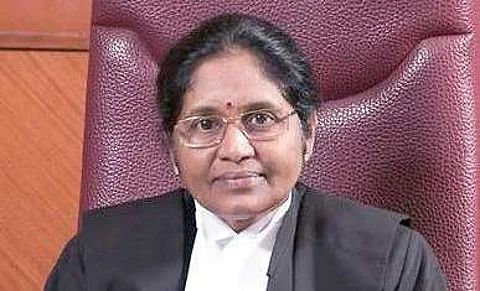

NEW DELHI: Strange it may sound, but the Supreme Court of India has seen only six women judges on its august benches since its inception in 1950. The first woman judge was Justice Fathima Beevi, who was appointed to the Supreme Court around six months after her retirement from the Kerala High Court in 1989.
Now, all eyes will be on the Supreme Court collegium meeting expected on November 15, when it is likely to consider the names of two women judges for elevation to the SC bench.
According to sources, one of the names which is being considered is that of Bombay’s Chief Justice, Manjula Chellur. Justice Chellur is due to retire in December 2017 if she continues in the High Court. Before she was transferred to Bombay, she was the Chief Justice of Calcutta HC.
Besides Justice Chellur, Justice G Rohini, the current Chief Justice of Delhi HC has also been considered. She has been serving as the Chief Justice of Delhi HC for more than two years. At present, Justice R Banumathi is the only woman judge in the Supreme Court of the total 25 judges. Since Independence, the apex court has seen just six women judges of the total 229 judges appointed from 1950. In 24 state high courts, nine High Courts did not have a single woman judge. Three high courts had only one woman judge.
The Bombay HC has the highest number of women judges at 10 followed by Delhi and Punjab and Haryana High Courts, both with nine woman judges each. There are just 62 women judges compared to 611 male judges in 24 HCs across India. On Friday, Centre had informed the Supreme Court that it has rejected 43 from the 77 recommendations of the Supreme Court collegium for the appointment of high court judges and approved appointment of 34 judges.
This is perhaps the first time that the government has returned such a large number of proposals for reconsideration. Under the present, Collegium system of appointing judges, the Centre can seek reconsideration but is bound to accept the proposals if the Collegium rejects the government’s objections.